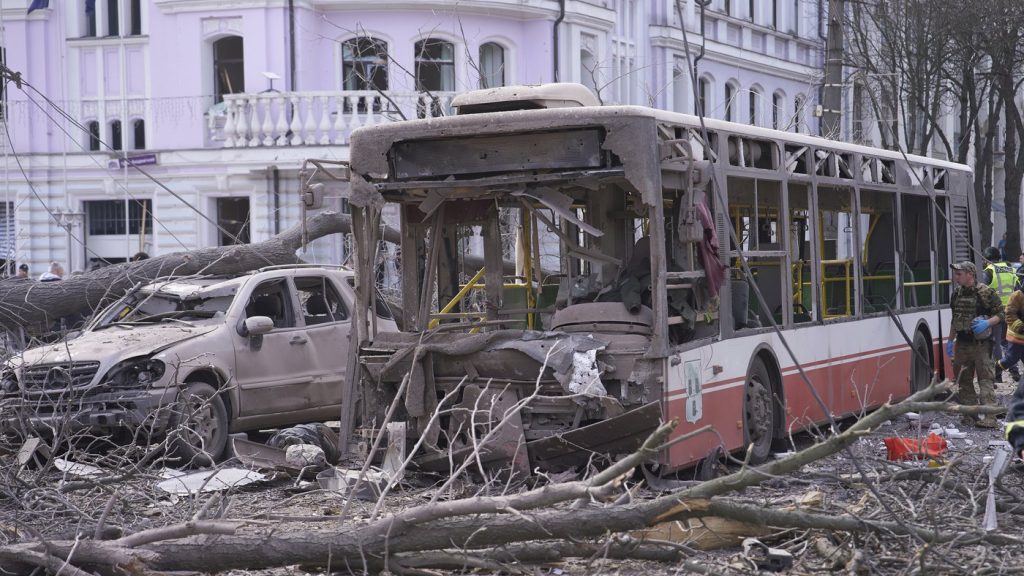OTTAWA – Canada is closely monitoring U.S. President Donald Trump's efforts to mediate the ongoing war in Ukraine, a conflict that began with Russia’s invasion in 2014. Canada has expressed its willingness to assist in maintaining peace, contingent upon a ceasefire agreement between Russian President Vladimir Putin and Ukrainian President Volodymyr Zelenskyy.
The outcome of this war has significant implications for global security and geopolitical stability. According to Marcus Kolga, a senior fellow at the Macdonald-Laurier Institute, the manner in which the conflict concludes could have far-reaching ramifications for peace around the world.
Current Developments in Peace Talks
As of August 15, 2025, President Trump hosted a summit with President Putin in Alaska, signaling a shift in Western relations with Russia. Shortly thereafter, Trump welcomed President Zelenskyy along with European leaders to discuss the situation. Ukraine has stated that it requires security guarantees from other nations to ensure that Russia will not initiate another invasion. Conversely, Moscow demands that Ukraine be prohibited from joining alliances such as NATO or the European Union.
Canada has been involved in diplomatic efforts aimed at securing a peaceful resolution in Ukraine for over two years. These discussions have evolved into a Coalition of the Willing, which comprises various nations including most European countries, Japan, and Australia, all prepared to support a potential peacekeeping mission in Ukraine. Canada’s top military officials are also engaged in NATO discussions to coordinate potential military contributions.
Although Trump has asserted that the U.S. will not deploy troops to Ukraine, he has hinted that air support could be provided to uphold peace during these negotiations.
Background of the Conflict
The conflict erupted when Russia invaded Ukraine in 2014, seizing Crimea and engaging in territorial battles for several years before escalating to a full-scale invasion in February 2022. Trump has inaccurately suggested that Ukraine instigated the conflict, while Ukraine maintains that its 2014 democratic uprising against a Moscow-backed president posed a direct challenge to Russian authority.
Historically, Ukrainians perceive themselves as victims of Russian imperialism, citing events such as the suppression of their language and identity, the 1932 Holodomor famine, and reports of Russian atrocities in the current war. In 1994, Ukraine relinquished its nuclear arsenal with assurances from Moscow, Washington, and London regarding its security.
Russia claims to be preventing a Western invasion and protecting Russian speakers in Ukraine. However, these assertions are widely disputed. Russia’s rhetoric includes characterizing Ukraine’s government as a "Nazi regime," despite the fact that both the current president and former prime minister are of Jewish descent.
Canada's Contribution Compared to Others
According to the Kiel Institute, Canada ranks as the fifth-largest donor to Ukraine when measured in raw dollar amounts and eleventh based on GDP. The United States leads in financial support, followed by Germany, the United Kingdom, and Japan. Canada's contributions exceed $19.7 billion, with some estimates placing the figure closer to $22 billion, including military, humanitarian, and financial aid.
Canada's assistance is particularly notable in humanitarian initiatives, focusing on resettling children abducted by Russian forces, providing maternal health services, and addressing landmine removal.
Potential Canadian Military Involvement
Prime Minister Mark Carney has refrained from detailing specific military contributions but emphasized the necessity for support across land, air, and sea. Experts, however, suggest that Canada's military resources are somewhat limited. As Carleton University professor Stephen Saideman pointed out, Canada may not possess substantial military assets that can be sent to Ukraine, particularly as Canadian troops are currently deployed in Latvia to deter Russian threats in the Baltic region.
While the prospect of sending Canadian troops to Ukraine remains uncertain, Canada has been leading a training mission for Ukrainian forces since 2015, which could continue if a ceasefire is established. Some military experts believe that specialized forces could be deployed to assist in training Ukrainian troops.
Strategic Importance of Supporting Ukraine
Kolga warns that allowing Putin to achieve territorial gains would send a dangerous message, encouraging further aggression. Canada has vital interests in the Arctic region, where Russia has been expanding its military presence. Strengthening Ukraine’s military capability is deemed essential to deter potential Russian expansionism in the Arctic and globally.
Ultimately, Kolga argues that prompt and robust support for Ukraine could have mitigated the conflict's duration, emphasizing the importance of swift military assistance rather than piecemeal support. The West's apprehension about provoking Russia, a nuclear power, has shaped its response, potentially prolonging the war and its associated challenges.











